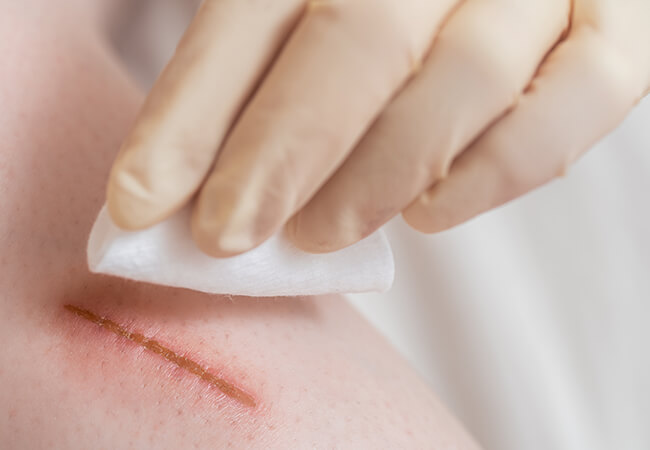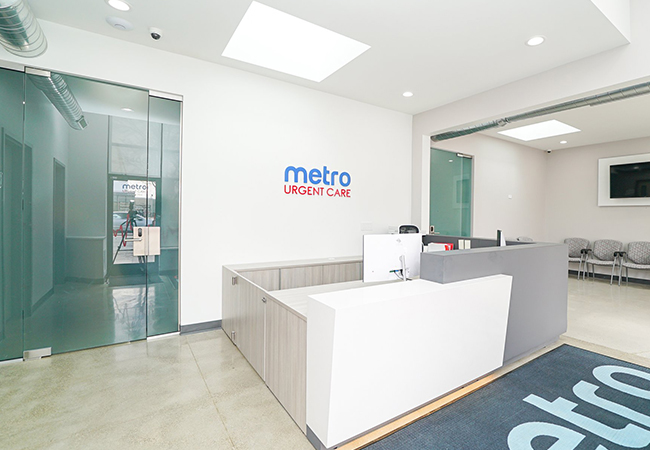

At Metro Urgent Care, we have experienced providers who can provide comprehensive laceration treatment with convenience and compassion.
Looking for laceration repair near you? Visit us at Metro Urgent Care in Chicago (Fullerton, Montrose) & La Grange, IL
BOOK APPOINTMENT - FULLERTON AVE BOOK APPOINTMENT - MONTROSE AVE BOOK APPOINTMENT - LA GRANGE
Experiencing a cut or scrape at times is quite common. While minor lacerations can heal on their own within some days, a deep cut may require medical assistance, as it may house bacteria or debris, which can lead to excessive bleeding or infections.
At Metro Urgent Care, we treat all types of laceration, including minor, major, facial, or those that need stitches, with our swift medical assistance and care. Contact us to get quick treatment for laceration.
If you get a scrape or cut, stop the bleeding by applying pressure to the wound and keep the wounded area elevated above the heart for 15 minutes. Once the bleeding stops, apply an antiseptic ointment and wrap your wound with sterile gauze to reduce the risk of infection. Take over-the-counter pain medications if needed.
If the bleeding does not stop even after applying pressure, visit us immediately, as your wound may require stitches or further treatment.

With highly experienced physicians and state-of-the-art equipment, Metro Urgent Care is the leading provider of laceration treatment in Chicago (Fullerton, Montrose) & La Grange, IL, and surrounding areas. Whether you have a cut or tear in your skin, face, or tissue, visit us for appropriate treatment and care.
Highlights of our services:
Some deep cuts may heal on their own, but stitches help speed healing, reduce infection risk, and minimize scarring. It’s best to see a healthcare provider to determine if stitches are needed.
Not always. Even if bleeding stops, stitches may be needed if the cut is deep, wide, or the edges don’t stay together. It’s best to have a healthcare provider evaluate the wound.
After 24 hours, the risk of infection increases and the wound begins to heal, making stitches less effective or harder to place properly. In some cases, other treatments are recommended instead.
If stitches stay in too long, they can cause skin irritation, infection, scarring, or the wound may not heal properly. It’s important to have them removed as advised by your healthcare provider.